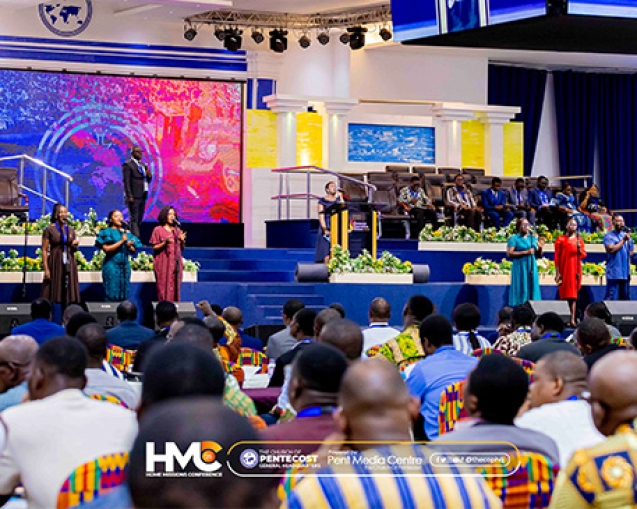The Hebrew term, which is commonly used in the Old Testament to denote glory is the word, “Kabowd”. It literally means weight or heaviness, but it is used figuratively in the sense of splendour, abundance, honour or glory. In the Old Testament, it is used variously to describe an individual’s wealth, power or majesty, or great honour (Genesis 31:1; 45:13). We can deduce that the glory of God is the expression of all the attributes of God.
Today, people commonly use the term weight in a similar way. For example, we might say a believer has “spiritual weight” (substance) if he possesses a mature, honourable, humble, and just character. This spiritual weight could be described as his “glory”, which makes him stand out from others. This is to say that what will make a church stand out from others is the “spiritual weight” the Church carries; this weight is the manifestation of the very attributes of God.
On the other hand, the Greek reference to glory is the term “Doxa”. The term connotes the notion of reputation, honour, fame, praise, dignity, splendour and brilliance. Thus, Doxa speaks of the real majesty, reputation or opinion belonging to God. And it is a sobering truth that God’s reputation in the world, or the world’s view of God, will depend, to a large extent, on how far His glory is seen in the Church. For the sake of His great name and the image of the Church, there should be evidence of the reality of the living God in the Church.
The church is established to show forth the glory of the God who dwells in us. We should, therefore, do well not to engage in acts that grieve the Spirit of God in us. (Ephesians 2:18-22) This is because the Holy Spirit is very sensitive; “reverently hypersensitive,” hence, although the Spirit never leaves us (John 14:6), the anointing diminishes. That is, the sense of His presence could be gone, and it would seem as though He has left us.
In the same way, the glory of God ought to be jealously guarded because it can be pushed out of the church. When that happens, the Church loses her attraction to the nations (2 Chronicles 7:19-22). Where the glory of God is absent in the Church, even though there could be the presence of the priest, the temple, the altar and sacrifices as in the days of Eli, the priest, revelation could be rare; the people cast restraint because the glory of God has been pushed out of the temple (1 Samuel 3:1-2; 4:21-22).
The glory of God is an inheritance of the Church, and for that matter, every child of God. God’s glory is not just a theoretical concept to be learned. It is a heavenly reality that can continuously be experienced in the Church.
The fact that God dwells in His creation and is indivisibly present everywhere is a generally accepted truth of the Christian faith. No point in creation is nearer to or further from God than any other (Acts 17:26-28).
When the glory of God is in the Church, worship and sacrifice are made spontaneously without compulsion (2 Chronicles 5:13-14; 7:1-2; Exodus 33:9-10). Also, people respond quickly to the gospel. When the glory of God is in the Church, there is also the experience of the supernatural and transformation. The supernatural is the unexplainable manifestations of the power of God in the life of the Church (Acts 5:15-16; 19:12; 8:5-8; 12:5-17), while the transformation in the church rests on the extent, the Church can radiate the very beauty and holiness of God (Ephesians 5:27; 1Peter 2:9-10).
The Church that seeks to possess nations should be like Moses who desired to experience the presence of God – a church that through prayer will cause God to rend the heavens open and descend into our land (Isaiah 64:1), a Church that trusts in the Father who is in heaven and thus seeks God Himself and not just His blessings. This is what makes the difference between nominal Christian life and the life radiant with His glory. This makes the difference between generations of believers; it is the difference between denominations; it is the distinction between Ministers.
So, let us all make conscious effort as individuals and as a church to go for the glory of God by purifying ourselves from everything that contaminates body and spirit, perfecting holiness out of reverence for God and by devoting ourselves to the ministry of prayer and the study of the Word.


















